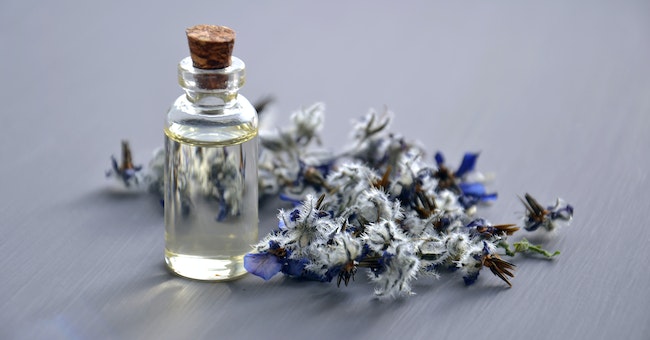How to Make Money by Being Engaged in AromaTherapy?

Introduction
Aromatherapy is a holistic healing practice that utilizes the natural aromas and therapeutic properties of essential oils to promote physical, mental, and emotional well-being. It is a form of alternative medicine that has been used for centuries and is still widely practiced today.
Essential oils are highly concentrated plant extracts derived from various parts of plants such as leaves, flowers, bark, or roots. These oils contain the distinctive fragrances and therapeutic compounds of the plants from which they are extracted. Aromatherapy harnesses the aromatic qualities of these essential oils to stimulate the senses and trigger specific responses in the body and mind.
The application of aromatherapy can vary, but commonly includes inhalation, topical application, or diffusion. Inhalation involves breathing in the scent of the essential oils, either directly from the bottle, through a diffuser, or by adding a few drops to a bowl of hot water. Topical application involves diluting essential oils with a carrier oil and applying them to the skin through massage or as part of skincare routines.
The essential oils used in aromatherapy have different properties and can be selected based on their specific therapeutic benefits. For example, lavender oil is known for its calming and relaxing properties, while peppermint oil is often used to alleviate headaches or promote mental alertness. Other popular essential oils used in aromatherapy include eucalyptus, tea tree, chamomile, rosemary, and lemon, among many others.
Aromatherapy is believed to work through the absorption of essential oil molecules into the bloodstream and the subsequent interaction with the nervous system. The aroma of the oils can stimulate the limbic system, which is responsible for emotions, memory, and mood regulation. As a result, aromatherapy is often used as a complementary therapy for stress reduction, relaxation, sleep improvement, mood enhancement, pain management, and overall wellness.
The Potential for Financial Success in Aromatherapy
The potential for financial success in aromatherapy can be significant for individuals who are dedicated, skilled, and entrepreneurial. While it may not guarantee overnight wealth, aromatherapy can offer various avenues for generating income and building a thriving business. Here are some factors that contribute to the financial potential in this field:
Growing Demand: Aromatherapy is gaining popularity as more individuals seek natural and holistic approaches to health and well-being. The increasing awareness and acceptance of aromatherapy as a complementary therapy create a growing market for qualified aromatherapists.
Multiple Revenue Streams: Aromatherapists can generate income through various channels. These include offering one-on-one client sessions, group workshops or classes, selling essential oils and related products, creating online courses or digital resources, and even writing books or articles on aromatherapy. Diversifying your income streams can help maximize your earning potential.
Niche Specializations: Developing specialized knowledge or expertise within the field of aromatherapy can set you apart from competitors and attract clients seeking specific solutions. For example, focusing on areas like stress management, women's health, or skincare can help you carve out a unique niche and establish yourself as an authority in that domain.
Repeat Clients and Referrals: Building strong relationships with clients and providing exceptional service can lead to repeat business and positive word-of-mouth referrals. Satisfied clients are more likely to return for additional sessions or recommend your services to friends, family, and colleagues, helping you expand your client base organically.
Collaborations and Partnerships: Forming collaborations with other wellness practitioners, such as massage therapists, chiropractors, or yoga instructors, can open up new opportunities for cross-referrals and joint ventures. Partnering with complementary businesses or wellness centers can also increase your visibility and attract more clients.
Online Presence: Establishing a strong online presence through a website, blog, or social media platforms can help you reach a wider audience and attract potential clients beyond your local area. Online platforms also offer opportunities to sell products or courses globally, expanding your reach and potential customer base.
Continuing Education and Professional Development: Continuously investing in your education and staying up to date with the latest research and trends in aromatherapy can enhance your credibility and attract clients who value expertise. Advanced certifications, specialized training, or attending industry conferences can contribute to your professional growth and financial success.
The Importance of Obtaining Proper Education and Certification as an Aromatherapist
Obtaining proper education and certification as an aromatherapist is of utmost importance for several reasons. Here are the key reasons why investing in your education and obtaining certification is crucial in this field:
Knowledge and Expertise
Client Safety and Well-being
Credibility and Trust
Professional Opportunities
Legal and Ethical Considerations:
Continuous Growth and Development
Networking and Community
In summary, proper education and certification in aromatherapy ensure you have the knowledge, skills, and credentials necessary to provide safe and effective services to clients. It establishes credibility, builds trust, and opens doors to professional opportunities. By investing in your education, you demonstrate your commitment to excellence and contribute to the overall advancement of the aromatherapy profession.
Recommended Online Resources for Further Study in Aromatherapy
Chapter 1 - Section 11 - Introduction to Aromatherapy Aromatherapy FREE online Course
In this course, titled "Introduction to Aromatherapy," students will embark on a fascinating journey into the world of aromatherapy. Exploring the art and science of utilizing naturally extracted aromatic essences from plants, students will learn about the effects of essential oils on the skin, application methods, classification, and mixing rules. Join this course to deepen your understanding of aromatherapy and discover the all-natural healing benefits of essential oils.
Course highlights:
Explore the art and science of utilizing aromatic essences for holistic well-being.
Gain insights into essential oil effects on the skin and application methods.
Discover the classification of essential oils and different categories of aromatic notes.
Learn mixing rules in aromatherapy and the significance of photosensitive oils.
Deepen your understanding, enhance well-being, and unlock the benefits of essential oils.
How to become a Certified Aromatherapist
In this course, you will discover how to become a Certified Aromatherapist with Jade Shutes, an experienced aromatherapist. Join her Foundations of Aromatherapy certification course, where you'll explore the history, science, and therapeutic properties of essential oils. Gain valuable insights into career opportunities and receive resources to further your practice.
Course highlights:
Gain a comprehensive overview of aromatherapy certification and explore rewarding career opportunities.
Learn about the history, science, and therapeutic properties of essential oils from an experienced aromatherapist.
Master the basics of blending with essential oils and develop your skills in aromatherapy practice.
Access valuable resources to deepen your knowledge and enhance your journey towards aromatherapy certification.
Start your path towards becoming a certified aromatherapist under the guidance of Jade Shutes, an expert in the field.
How to Make Money as an Aromatherapist
Led by an experienced Aromatherapy Entrepreneur, this course equips Certified Aromatherapists with insights and strategies to monetize their passion for essential oils. Learn effective techniques for starting a profitable and impactful aromatherapy business, from marketing and branding to client acquisition and business management.
Course highlights:
Discover three effective ways to earn a living and build a profitable aromatherapy business.
Learn valuable insights and strategies from an experienced Aromatherapy Entrepreneur with 20 years of industry expertise.
Explore proven techniques for marketing, branding, client acquisition, and effective business management.
Monetize your passion for working with essential oils while making a positive impact on others' lives.
Turn your Certified Aromatherapist skills into a thriving and successful career with this comprehensive course.
Creating a Business Plan for Being a Successful Aromatherapist
Creating a solid business plan is essential for becoming a successful aromatherapist. Here are some key elements to include when developing your business plan:
Executive Summary: Provide a concise overview of your aromatherapy business, including your mission statement, target market, and unique selling proposition.
Market Analysis: Conduct thorough research on the aromatherapy market, including industry trends, competition, and potential clients. Identify your target audience and their specific needs and preferences.
Services and Products: Outline the range of services and products you will offer as an aromatherapist. This can include individual sessions, workshops, custom blends, or retailing essential oils and related products.
Marketing and Sales Strategy: Define how you will promote your aromatherapy business and attract clients. Develop a marketing plan that incorporates online and offline channels, such as social media, website, networking, and collaborations with other wellness practitioners.
Pricing and Financial Projections: Determine your pricing structure based on factors like market rates, costs, and profit margins. Create financial projections that outline your expected revenue, expenses, and profitability over a specific timeframe.
Operations and Management: Describe the operational aspects of your aromatherapy business, including your workspace, equipment, and any staff or contractors you may employ. Outline your management structure and responsibilities.
Client Acquisition and Retention: Detail strategies for attracting and retaining clients. This can include referral programs, loyalty incentives, or offering exceptional customer service to ensure client satisfaction and loyalty.
Legal and Regulatory Considerations: Research and address any legal and regulatory requirements for operating an aromatherapy business in your area. This may include obtaining necessary permits, licenses, or insurance coverage.
Professional Development: Highlight your commitment to continuous learning and professional development as an aromatherapist. Outline plans to attend workshops, conferences, or pursue advanced certifications to enhance your skills and knowledge.
SWOT Analysis: Conduct a SWOT (Strengths, Weaknesses, Opportunities, Threats) analysis to identify internal strengths and weaknesses, as well as external opportunities and threats to your aromatherapy business. Use this analysis to inform your strategies and mitigate potential risks.
Implementation Plan: Break down your business plan into actionable steps and set realistic timelines for each task. This will help you stay organized and accountable during the implementation phase.
Remember, a business plan is a dynamic document that can evolve over time. Regularly review and update your plan as your aromatherapy business grows and adapts to changing market conditions.
Conclusion
In conclusion, becoming a successful aromatherapist and monetizing your passion for working with essential oils is an attainable goal with the right strategies and mindset. By following the steps outlined in this blog, you can pave the way for a thriving aromatherapy business that not only generates income but also creates a positive impact on the lives of your clients.





